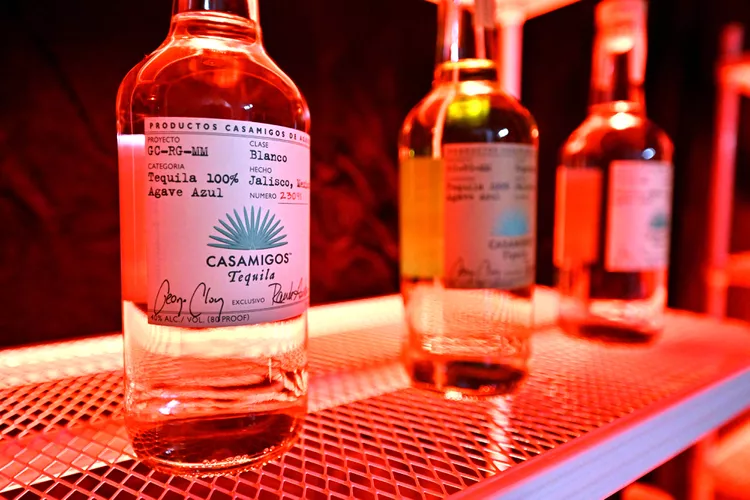In recent years, the tequila industry has been deeply engaged in discussions about transparency, particularly around additives and labeling claims. However, a new class action lawsuit filed this week in U.S. federal court has shifted the spotlight to the purity of the spirit itself, accusing global spirits giant Diageo of adulterating some of its most popular premium tequilas—Casamigos and Don Julio—with sugar cane or other non-agave alcohols.
The Allegations: Misleading “100% Agave” Labeling
The lawsuit, filed in the U.S. District Court for the Eastern District of New York, claims laboratory testing revealed that these tequilas contain significant quantities of sugar cane or other alcohols rather than being made solely from blue Weber agave as labeled. Despite bottles carrying labels such as “Tequila 100% Agave Azul” (Casamigos) and “100% de Agave” (Don Julio), plaintiffs allege these products do not meet the strict regulatory requirements for “100% agave” tequila in either the U.S. or Mexico.
Plaintiffs—including a Brooklyn sushi restaurant and a New York bartender with a significant Instagram following—assert they purchased these brands believing they were pure agave spirits and paid premium prices accordingly. Had they known the spirits were allegedly adulterated, they claim they would not have bought the products or would have paid less.
The lawsuit demands $5 million in damages on behalf of consumers and requests an injunction to stop what it alleges is deceptive advertising.
Diageo’s Response
Diageo vehemently denies the allegations. Sophie Kelly, Diageo’s global head of tequila, stated:
“These allegations of adulteration are outrageous and completely false.”
She emphasized that both brands undergo rigorous certification through Mexico’s Tequila Regulatory Commission (CRT) and comply fully with both Mexican official standards (NOM) and U.S. Alcohol and Tobacco Tax and Trade Bureau (TTB) regulations. According to Diageo, the tequilas are made entirely from 100% blue Weber agave and meet all quality and labeling requirements.
Regulatory Standards and Industry Practices
Mexican law mandates that tequilas labeled “100% Agave” be made exclusively from blue Weber agave cultivated in designated regions. While minor flavorings (up to 1% of total volume) are permitted after distillation, the addition of other alcohols—such as sugar cane or corn spirits—is strictly prohibited in 100% agave tequila. Spirits containing other sugar sources must be labeled as “blended” tequila and cannot claim 100% agave status.
The CRT enforces these regulations within Mexico, while the U.S. TTB oversees labeling for tequilas exported to the U.S., currently the world’s largest tequila market.
Industry Transparency and Controversy
The lawsuit challenges the credibility of CRT certification, citing reports from agave growers and industry groups like the Tequila Authority Mezcalistas alleging widespread regulatory lapses and corruption. It claims that CRT officials have permitted adulteration in exchange for profits, citing lab sample analyses and deliveries of sugarcane alcohol to distilleries as evidence.
These allegations remain unproven and rely heavily on second-hand reports. Nonetheless, they touch on ongoing industry tensions around transparency, labeling standards, and regulatory enforcement.
Additives Debate and Regulatory Pushback
Over the past two years, the tequila industry has also seen intense debate around additives. The CRT recently prohibited producers from marketing tequila as “additive-free,” drawing criticism from some industry voices for being too restrictive.
In a related legal move last month, the CRT sued the Additive Free Alliance—an industry nonprofit promoting greater transparency—for allegedly misleading consumers by implying authority the CRT claims it solely holds, despite not currently certifying any “additive-free” tequilas.
Moreover, in February, the CRT temporarily banned Patrón from exporting to the U.S. after a campaign claiming the tequila contained no “secret ingredients,” highlighting the strict regulatory environment producers face.
Conclusion
This high-profile lawsuit against Diageo shines a bright light on the challenges and controversies surrounding tequila purity, labeling, and regulation. While Diageo defends the integrity of Casamigos and Don Julio, the case underscores the increasing consumer demand for transparency and authenticity in premium spirits—and the complex regulatory landscape tequila producers must navigate.
As this legal case unfolds, it will be closely watched by consumers, industry insiders, and regulators alike, potentially reshaping how tequila authenticity is verified and communicated worldwide.
Related Topics


